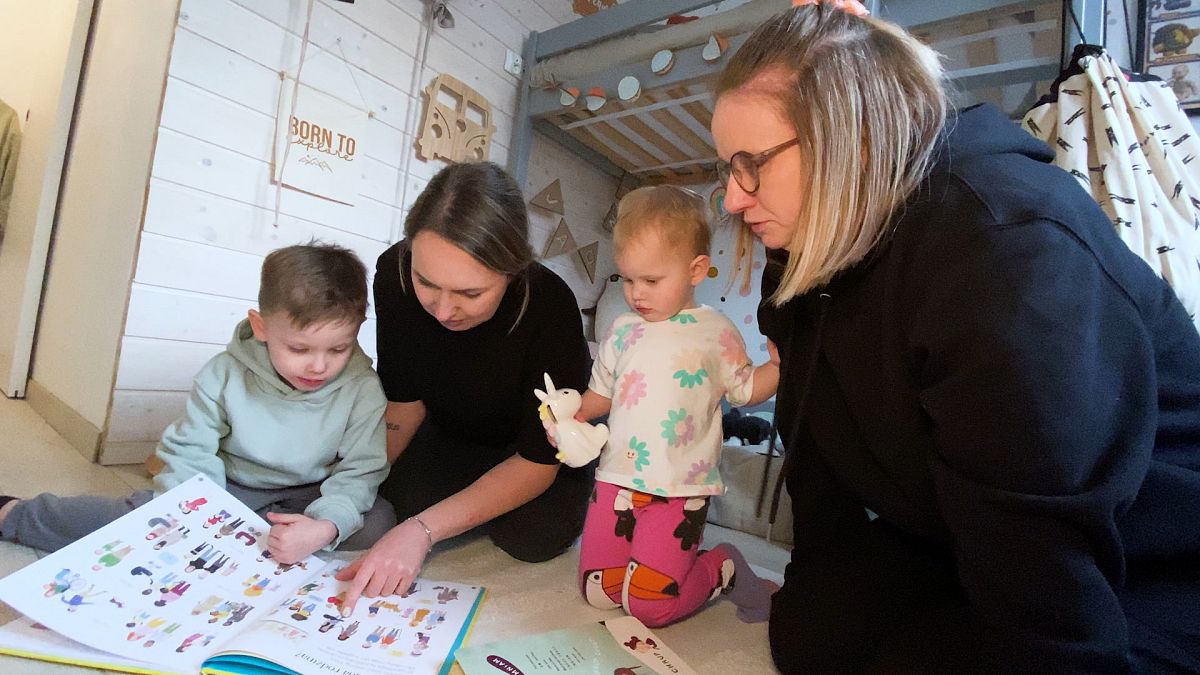Queer in Poland: When can the LGBTQ+ community expect equal rights?
The LGBTQ+ community in Poland has long advocated against the erosion of human rights after years of rule-of-law concerns. Euronews reporter Julian Lopez travels to Warsaw to speak with activists and community members about their hopes – and fears – for the future. Poland has the worst LGBTQ+ rights record in the European Union. ILGA-Europe, […]


The LGBTQ+ community in Poland has long advocated against the erosion of human rights after years of rule-of-law concerns. Euronews reporter Julian Lopez travels to Warsaw to speak with activists and community members about their hopes – and fears – for the future.
Poland has the worst LGBTQ+ rights record in the European Union. ILGA-Europe, an LGBTQ+ advocacy network, connecting more than 700 organisations, placed Poland near the bottom of its 2023 Rainbow Europe Index – it came in 42nd place out of 49 European countries and microstates for its recognition of gender and sexual equality.
The country’s new liberal government led by Prime Minister Donald Tusk has promised to address the policies affecting LGBTQ+ people, but activists fear that significant legislative changes will take time because Tusk’s government agenda is so full.
Under the previous ultra-conservative government, the spread of disinformation and hate speech against the LGBTQ+ community resulted in what activists describe as top-down polarisation.
“You can say whatever you want about the LGBTI community and you won’t get punished. If you say the exact same words, something hateful against religious minorities, ethnic minorities and national minorities, then it will be a crime,” Anna Mazurczak, a lawyer at the Polish Society of Antidiscrimination Law, told Euronews.
“What the government agreed on, actually, was that we should definitely amend the Criminal Code in order to make homophobic, transphobic hate speech a crime. And they prepared a bill, that we know for sure, but they are still processing it,” Mazurczak added.
Poland also has one of the most restrictive abortion laws in Europe. Facilitating terminations is illegal in Poland, help can only be provided if the pregnant person’s life is in danger or they can prove that the pregnancy was the result of rape or incest.
Undoing years of backsliding
The current laws governing LGBTQ+ rights and abortion were introduced by Poland’s Constitutional Tribunal under the previous Law and Justice (PiS) government and led to years of conflict with Brussels and a rule-of-law dispute.
Last year the Court of Justice of the European Union (CJEU) ruledthat Poland had breached EU law by introducing a reform in 2019 that prevented judges from questioning the appointment of other judges.
Poland was placed under Article 7 in 2017, an EU clause that allows for EU membership rights to be suspended if a country seriously and persistently breaches EU principles.
Subsequently, Brussels denied the previous government access to €76.5 billion in cohesion funds available for allocation between 2021 and 2027, mostly due to the decline in judicial independence and growing political interference in the courts.
Poland was required to appear in regular hearings before other member states and account for the progression or regression of the rule of law.
In February, Polish officials travelled to Brussels to present an “action plan” of nine draft bills, aimed at restoring judicial independence from the country’s highest tribunal to the lower courts.
However, the ruling coalition will still need to rely on the support of opposition MPs to reform the laws governing LGBTQ+ rights and abortion because it does not have a majority in parliament.
Krzysztof Bosak, the chairman of Konfederacja, a coalition of far-right parties in opposition, told Euronews: “We have our family law, we have our social values. In these social values, apart from the traditional approach to the family, there is also a lot of freedom when it comes to respect for how someone arranges their own life.
“Therefore, we do not actually have such a topic in the debate at the moment.”
But Anita Kucharska-Dziedzic, an MP from the New Left Party argued that progress is being made, however slow. “A new law regulating so-called civil partnerships has now been announced. Work on recommendations is underway, and the project won’t certainly be abandoned this time,” she said.
Looking to the future
As it stands, same-sex marriage is not allowed in Poland. Euronews met with a same-sex couple hours before they were due to travel to Denmark to get married.
Publisher Elżbieta and writer Renata have been together for three decades however their wedding won’t have any legal value in Poland.
“We would prefer to get married in Poland, of course, but it’s still impossible. We are in a relationship with each other for about 30 years. Many straight marriages don’t last so long. And in Poland it’s still impossible to recognise our relationship, even as a civil partnership,” Renata said.
Members of the LGBTQ+ community also argue that the new law regulating civil partnerships does not go far enough.
“As people who have formed same-sex relationships, we don’t only care about having a legal partnership. We care about equality”, said Karolina, who parents two children with her partner Aleksandra.
Karolina and Aleksandra have been together for 12 years but Karolina currently has no rights to her children as she is not the biological mother.
Moving forward, Poland’s progress on LGBTQ+ rights hinges on coalition politics. Despite any potential consensus within the coalition, advances in this area remain contingent on the president’s approval (PiS loyalist Andrzej Duda) and the judiciary’s stance.
While the political influence of PiS continues to generate uncertainty, pro-LGBTQ+ dynamics in public opinion and the efforts of the new government offer cautious optimism for advancements in legal rights.
Civil servant Sławek Wodzyński, who has been with his partner, LGBTQ+ activist Bart for ten years, concluded: “It seems to me that politicians are not aware that the reality today is slightly different than it was 10 years ago. Civil society in Poland is now stronger. And they won’t buy this smooth political talk”.














